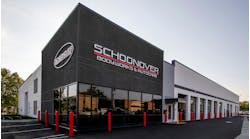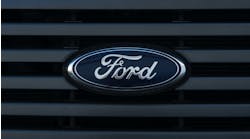Aug. 15, 2017—The global push among carmakers to make ever lighter vehicles is leading some auto suppliers in Japan to turn to an unlikely substitute for steel: wood.
A Reuters report details how Japanese researchers and auto component makers say a material made from wood pulp weighs just one fifth of steel and can be five times stronger.
The material, cellulose nanofibres, could become a viable alternative to steel in the decades ahead, they say, although it faces competition from carbon-based materials, and remains a long way from being commercially viable.
Reducing the weight of a vehicle will be critical as manufacturers move to bring electric cars into the mainstream. Batteries are an expensive but vital component, so a reduction in car weight will mean fewer batteries will be needed to power the vehicle, saving on costs.
Researchers at Kyoto University and major parts suppliers such as Denso, Toyota's biggest supplier, and DaikyoNishikawa, are working with plastics incorporated with cellulose nanofibres - made by breaking down wood pulp fibres into several hundredths of a micron (one thousandth of a millimeter).
Cellulose nanofibres have been used in a variety of products ranging from ink to transparent displays, but their potential use in cars has been enabled by the "Kyoto Process", under which chemically treated wood fibres are kneaded into plastics while simultaneously being broken down into nanofibres, slashing the cost of production to roughly one-fifth that of other processes.
Wood chips and fibers are chemically treated before bring converted into cellulose nanofibers at a laboratory in Tokyo.
The university, along with auto parts suppliers, are currently developing a prototype car using cellulose nanofibre-based parts to be completed in 2020.


